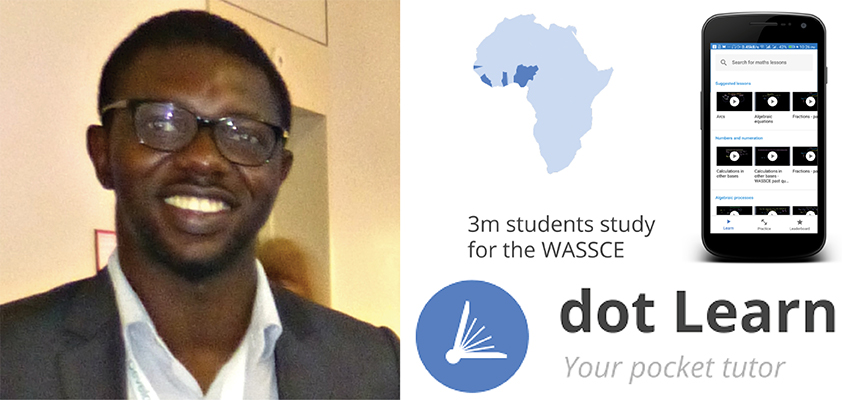
dot Learn
MIT founders
Tunde Alawode SM ’15, PhD ’17 (Mechanical Engineering)
Sam Bhattacharyya MBA ’16
Mission
Dot Learn’s consistent goal has been to make online video learning accessible in the developing world, but its approach has shifted. Originally, the founders started an online learning platform that was geared toward students in Sub-Saharan Africa, but they’ve evolved their focus to provide software that compresses educational videos. They can package an hour of video in as little as 1MB, about 100 times smaller than the average YouTube video, and deliver content to areas where data accessibility is an issue.
Status
Educational providers like Coursera and Khan Academy as well as companies in the developing world have already approached dot Learn about working together. The video compression technology is being developed now, and the founders hope to begin rolling it out to companies in late 2018. In the next year, Bhattacharyya and Alawode hope to address issues of scaling the business, with the aim that dot Learn will help to provide data-light online learning to 50 million students by 2022.
MIT pathway
Alawode and Bhattacharyya met in 2015 in MIT D-Lab’s Development Ventures class. Bhattacharyya felt driven to address global education inequality after working in the Peace Corps, and Alawode shared that passion.
After that class, the founders entered the $100K Entrepreneurship Competition. The Legatum Center for Development and Entrepreneurship, D-Lab, and MIT-Africa Initiative all provided financial support, and through the MIT-Africa Program at MIT International Science and Technology Initiatives (MISTI) they were able to perform market research directly in Ghana. Bhattacharyya and Alawode received an award from the MIT IDEAS Global Challenge and the MIT Inclusive Innovation Challenge, and further developed their ideas through MIT Sandbox and the Trust Center‘s delta v accelerator.
A development ventures class showed Bhattacharyya “I wasn’t crazy—this was a path others were following and this is something I could do, too.”
Bhattacharyya credits the combination of all of these resources for dot Learn’s progress. Early on, the D-Lab class in which he met Alawode “helped me learn that I wasn’t crazy—this was a path others were following, and this is something I could do, too,” he recounts. Further along their road, the delta v accelerator helped to focus their energy in a new way. “For the first time, I had the full day to work on the project. I thought, ‘This is my job now.’ It was amazing,” he recounts. Even now, after graduation, MIT mentors have continued to help him and Alawode as they build, shift, and scale.
Advice for fellow student entrepreneurs
“Entrepreneurship is like running a marathon through a maze,” says Bhattacharyya. “To get this far and keep going requires persistence, extreme optimism, and a nearly compulsive paranoia.” But he insists that the perseverance and grit pay off: “If you’re truly passionate to spend the next 5 to 10 years working on your idea, keep going. You’ll make it happen.”

